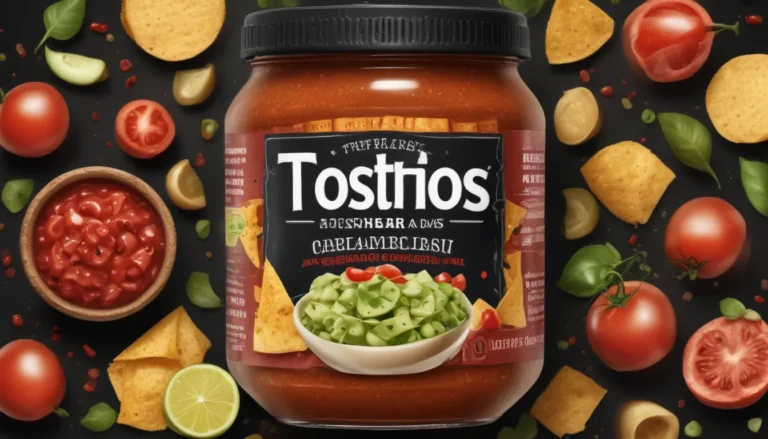The pictures in our articles might not always show exactly what the text is talking about. We use these images to make the article more interesting and eye-catching. They are there to add to the text, but not to replace it or show every detail.
Welcome to the world of pineberries, also known as “white strawberries” – a fascinating fruit with a unique twist that is gaining popularity in the realm of nutrition. These berries may look like traditional strawberries, but their white or pale yellow hue and pineapple-like flavor set them apart. Beyond just their delightful taste, pineberries are packed with essential nutrients that make them a healthy addition to your diet.
Uncover the Top 10 Pineberry Nutrition Facts
Let's dive into the key takeaways about pineberries that make them a valuable choice for your health and well-being:
- Nutrient Powerhouses: Pineberries are low in calories, high in fiber, and loaded with vitamin C and antioxidants. These properties contribute to healthy digestion, immune support, and potential anti-inflammatory effects.
- Vitamin C Boost: With approximately 33% of the recommended daily intake of vitamin C per 100 grams, pineberries provide essential support for your immune system and overall health.
- Calorie-Conscious Option: At only 32 calories per 100 grams, pineberries are a guilt-free snack choice for those mindful of their calorie intake.
- Fiber-Rich Goodness: Packing around 2 grams of fiber per 100 grams, pineberries can aid in digestion and promote a healthy gut.
- Antioxidant Armor: Loaded with antioxidants, pineberries help protect your body against free radicals, inflammation, and chronic diseases.
- Manganese Marvel: Significant levels of manganese in pineberries support bone health, metabolism, and collagen production.
- Skin-Loving Vitamin E: Pineberries provide a good amount of vitamin E, supporting cell protection and skin health.
- Heart-Healthy Potassium: A good source of potassium, pineberries aid in regulating blood pressure and maintaining heart health.
- Blood Sugar Control: With a low glycemic index, pineberries have minimal impact on blood sugar levels, making them suitable for individuals managing diabetes.
- B Vitamin Bonanza: Pineberries contain a range of B vitamins essential for energy production and nervous system function.
Embrace the Nutritional Bounty of Pineberries
- Vitamin E: Essential for cell protection and skin health.
- Potassium: Supports heart health and blood pressure regulation.
- B Vitamins (Thiamine, Riboflavin, Niacin): Vital for energy production and nervous system function.
- Ellagic Acid: Potential anti-cancer effects and overall well-being.
Pineberries not only offer a delectable flavor but also a myriad of health benefits. Including these unique fruits in your diet can enhance your intake of vital nutrients and promote overall well-being.
Conclusion: A Tasty and Nutritious Addition
In conclusion, pineberries are a wonderful choice for those seeking a unique and nutritious fruit. Low in calories and brimming with essential vitamins and minerals, pineberries contribute to a balanced diet. Rich in antioxidants, vitamin C, fiber, and other nutrients, pineberries can protect your body, boost immunity, and support digestion. Consider adding pineberries to your diet for a tasty and healthy treat!
Frequently Asked Questions (FAQs)
Q: What are pineberries?
A: Pineberries are a type of strawberry with a white or pale pink color and a flavor reminiscent of strawberries and pineapples.
Q: Are pineberries genetically modified?
A: No, pineberries are a natural and rare variety of strawberry cultivated over centuries, not genetically modified.
Q: How many calories do pineberries contain?
A: A single cup (about 150 grams) of pineberries typically contains 60-70 calories.
Q: Are pineberries high in antioxidants?
A: Yes, pineberries are rich in antioxidants, particularly anthocyanins, offering various health benefits such as reduced inflammation and improved heart health.
Q: Can pineberries boost the immune system?
A: Yes, pineberries are a good source of vitamin C, essential for immune support and defense against common illnesses.
Q: Can individuals with strawberry allergies eat pineberries?
A: While pineberries are a variation of strawberries with a different protein profile, consulting a healthcare professional is recommended for those with known strawberry allergies before consuming pineberries.
"Trust in our commitment to quality and authenticity as you explore and learn with us. Our dedication to delivering reliable and engaging content ensures that each fact shared on our site is both fascinating and credible. Every submission from real users like you undergoes meticulous review by our dedicated editors to uphold the highest standards of accuracy and reliability. Join us in discovering a wealth of diverse insights and information as we uphold our promise of trustworthy and fascinating content."






